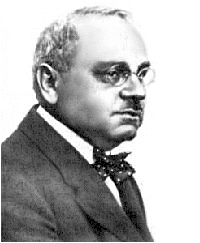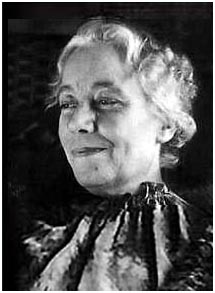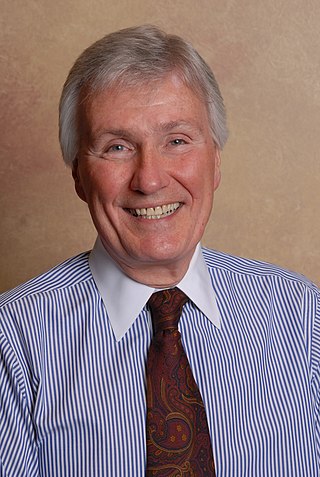
Alfred Adler was an Austrian medical doctor, psychotherapist, and founder of the school of individual psychology. His emphasis on the importance of feelings of belonging, relationships within the family, and birth order set him apart from Freud and others in their common circle. He proposed that contributing to others was how the individual feels a sense of worth and belonging in the family and society. His earlier work focused on inferiority, coining the term inferiority complex, an isolating element which he argued plays a key role in personality development. Alfred Adler considered a human being as an individual whole, and therefore he called his school of psychology "Individual Psychology".
Wolfgang Metzger is considered one of the main representatives of Gestalt psychology in Germany.

Alexandra Adler was an Austrian neurologist and the daughter of psychoanalyst Alfred Adler. She has been described as one of the "leading systematizers and interpreters" of Adlerian psychology. Her sister was Socialist activist Valentine Adler. Alexandra Adler's husband was Halfdan Gregersen.
In psychology, inferiority complex is a consistent feeling of inadequacy, often resulting in the belief that one is in some way deficient, or inferior, to others.
Neo-Freudianism is a psychoanalytic approach derived from the influence of Sigmund Freud but extending his theories towards typically social or cultural aspects of psychoanalysis over the biological.
Rudolf Dreikurs was an Austrian psychiatrist and educator who developed psychologist Alfred Adler's system of individual psychology into a pragmatic method for understanding the purposes of reprehensible behaviour in children and for stimulating cooperative behaviour without punishment or reward.
Depth psychology refers to the practice and research of the science of the unconscious, covering both psychoanalysis and psychology. It is also defined as the psychological theory that explores the relationship between the conscious and the unconscious, as well as the patterns and dynamics of motivation and the mind. The theories of Sigmund Freud, Carl Gustav Jung, and Alfred Adler are all considered its foundations.
Individual psychology is a psychological method or science founded by the Viennese psychiatrist Alfred Adler. The English edition of Adler's work on the subject (1925) is a collection of papers and lectures given mainly between 1912 and 1914. The papers cover the whole range of human psychology in a single survey, and were intended to mirror the indivisible unity of the personality.

Psychodynamics, also known as psychodynamic psychology, in its broadest sense, is an approach to psychology that emphasizes systematic study of the psychological forces underlying human behavior, feelings, and emotions and how they might relate to early experience. It is especially interested in the dynamic relations between conscious motivation and unconscious motivation.
Heinz Ludwig Ansbacher was a German-American psychologist specializing in the theories of Alfred Adler.
Adler University is a private university, with two campuses in North America. The university's flagship campus is in Chicago, Illinois, and its satellite campus is located in Vancouver, British Columbia. The university also offers online classes and degree programs online for both masters and doctoral students.

The International Communication Association (ICA) is an academic association for scholars interested in the study, teaching and application of all aspects of human and mediated communication.

Karen Horney was a German psychoanalyst who practiced in the United States during her later career. Her theories questioned some traditional Freudian views. This was particularly true of her theories of sexuality and of the instinct orientation of psychoanalysis. She is credited with founding feminist psychology in response to Freud's theory of penis envy. She disagreed with Freud about inherent differences in the psychology of men and women, and like Adler, she traced such differences to society and culture rather than biology.

Allan Cox was an American Adlerian scholar, business consultant and author based in Chicago. Cox was CEO of Allan Cox & Associates, which he founded in 1969.

Valery Moiseevich Leibin is a Russian psychoanalyst, Ph.D., head of the department of history and theory of psychoanalysis in Institute of Psychoanalysis, Professor of Moscow State Medical Stomatological University, an honorary Doctor of East European Institute of Psychoanalysis, an honorary member of the interregional public organization Russian Psychoanalytical Society, a member of the Academy of Pedagogical and Social Sciences, a chief scientist of Institute for Systems Analysis of Russian Academy of Sciences, a member of the editorial boards of the "Russian Psychoanalytic Bulletin", the philosophic psychoanalytic journal "Archetype", "Psychoanalytic Review" and "Review of Psychoanalysis". According to the rating given by "Psychological newspaper" Valery Leibin is in the top ten most prominent psychoanalysts in Russia.
Neo-Adlerian psychologists are those working in the tradition of, or influenced by Alfred Adler, an early associate of, and dissident from the ideas of, Sigmund Freud.
Individual education is a school system rooted in the individual psychology of Alfred Adler. Designed by Raymond Corsini, the individual education program includes a number of basic principles. The program consists of three components academic, creative/applied and socialization. Corsini also outlined disciplinary procedures and a number of other principles to ensure the most productive possible school environment.

Sophie or Sofie Lazarsfeld was an Austrian-American therapist and writer, a student of Alfred Adler.
The Journal of Individual Psychology is a quarterly peer-reviewed academic journal covering theory and methods of individual psychology. It is currently published by the University of Texas Press on behalf of the North American Society of Adlerian Psychology. The editors-in-chief are Jon and Len Sperry.
Sidonie Reiss (1882-1970) was an Adlerian psychotherapist and child psychologist.







